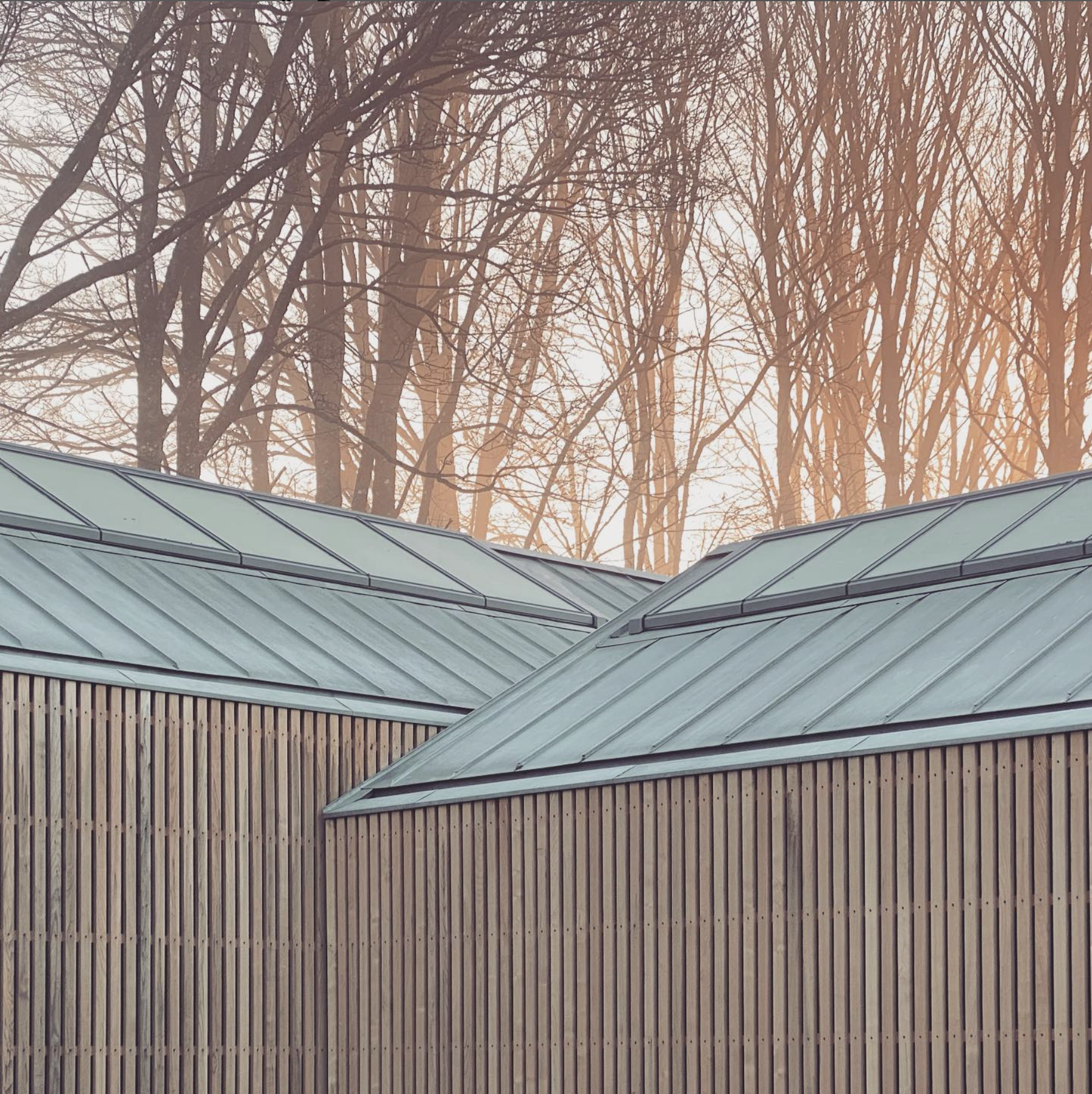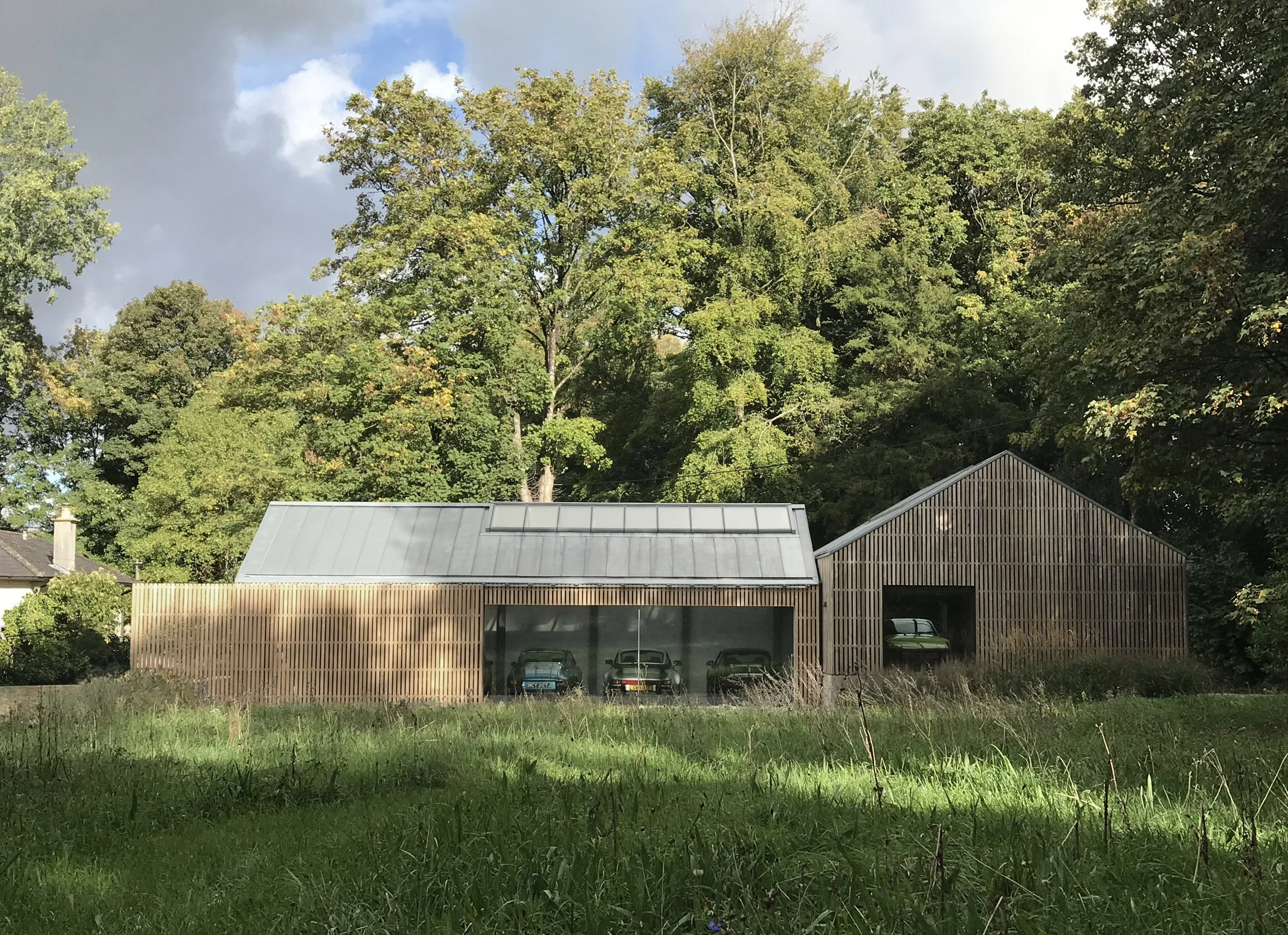


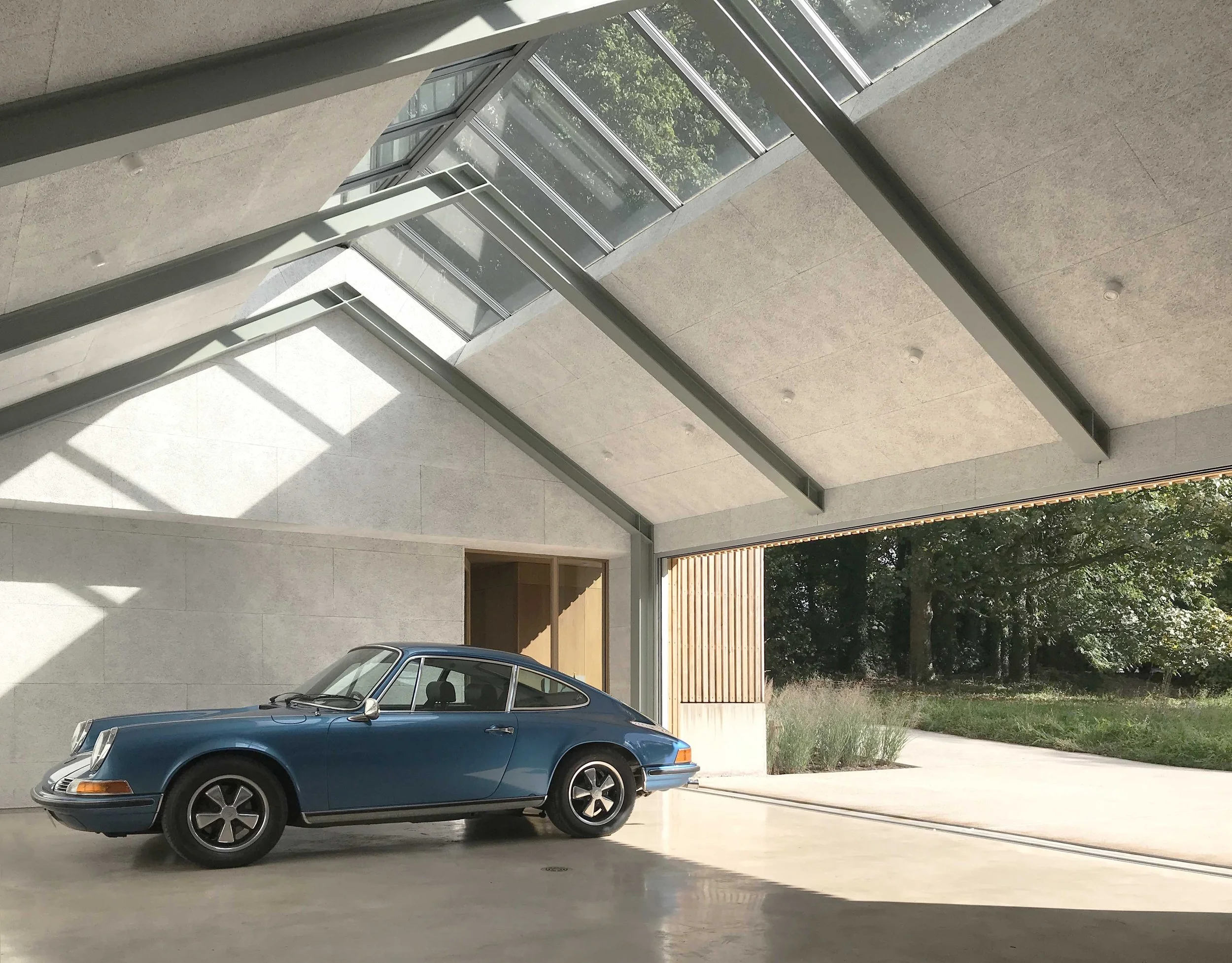




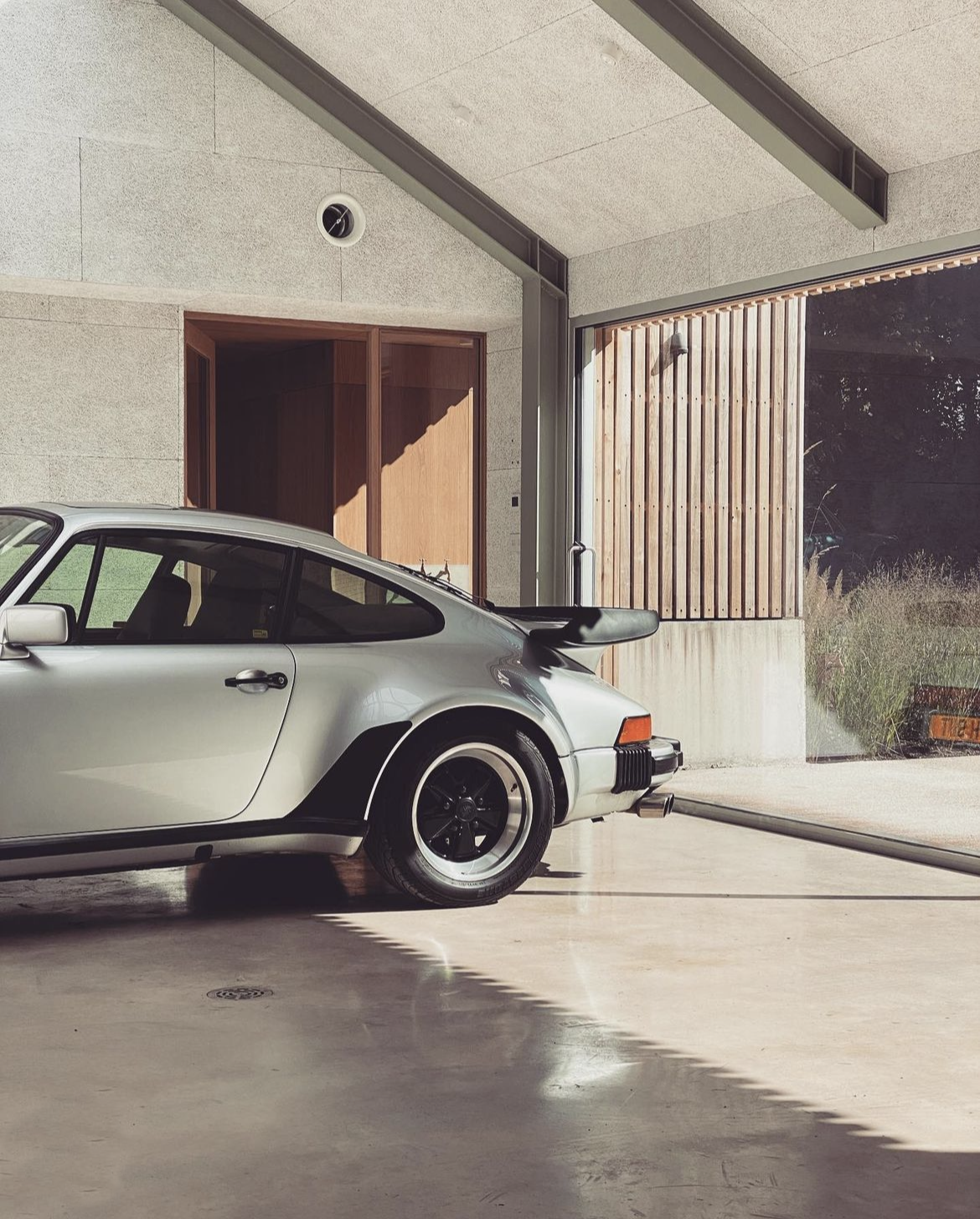
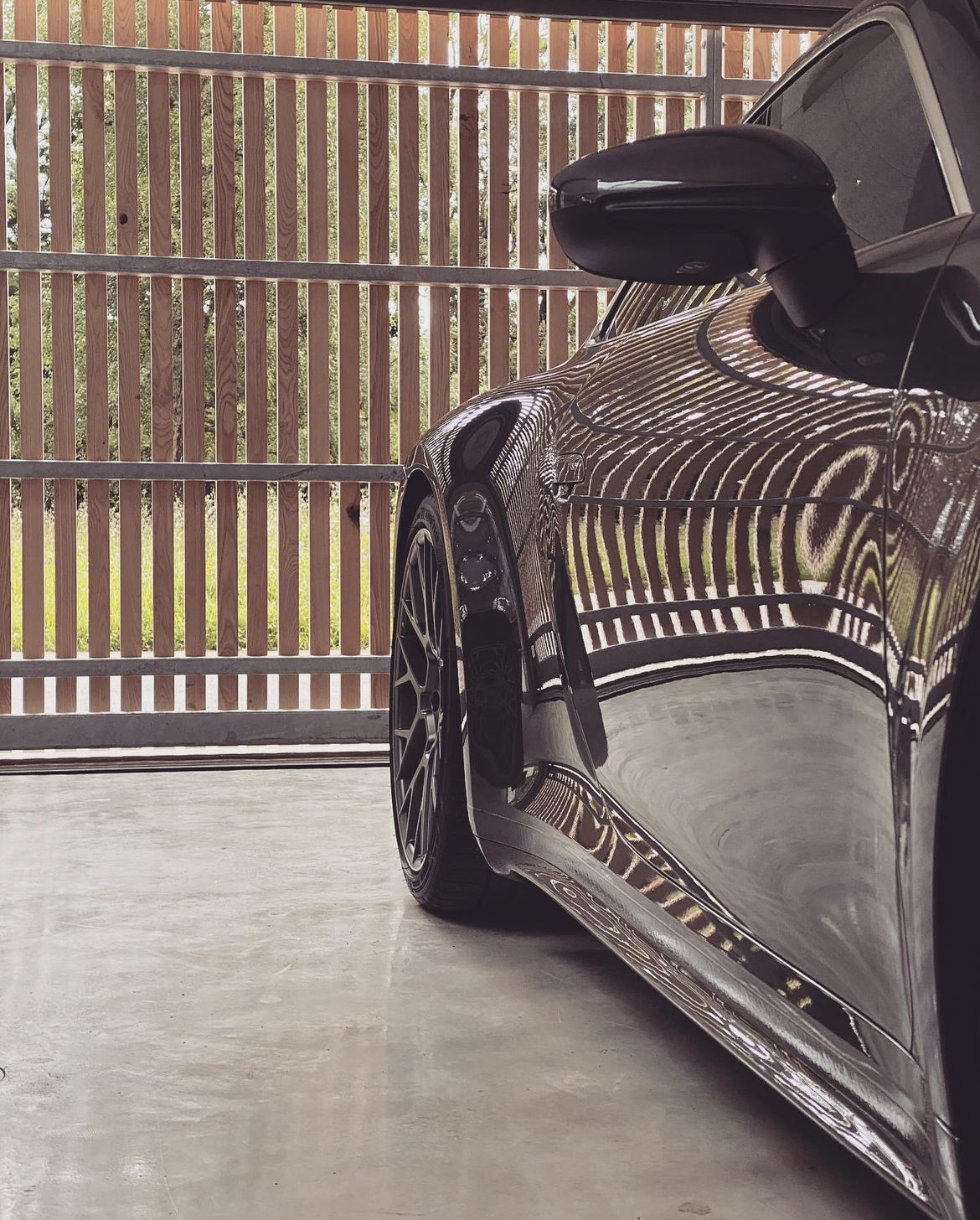


Autobarn
The Autobarn is the realisation of our client’s long-term dream to house his collection of classic German cars. The project is composed of two volumes: a clean, five-bay garage for everyday use and a taller workshop for repairs and future restoration projects. Beyond satisfying this initial use, the project ambition was to create a flexible, ‘long-life, loose-fit’ building that could be used for a range of different uses. Currently it doubles up as event space, however the ambition is that the Autobarn could one day become a low-energy house.
Located on the outskirts of a small Somerset village, the project is set within the grounds of an eighteenth-century Grade 2 listed house. It replaces several haphazard outbuildings and consolidates their amenity into an elegant architectural proposal, nestled within a glade of mature trees.
The project’s design references the language of neighbouring agricultural barns, re-interpreting more temporary, rudimentary methods of construction into a robust and elegant paradigm for low-cost, rural architecture. Composed of a concrete base and steel framed structure, intermittent timber cladding and zinc metal roof, the Autobarn adapts barn typologies with varying levels of refinement. Consideration was also given to its weathering, with the natural zinc roof dulling to complement the silver patination of the sweet chestnut cladding.
Like many barns, permeability to light and air is controlled through a series of movable layers. First experienced as a closed solid mass, the barn walls open up via a number of doors, including an heroic 7m sliding timber screen. The intermittent timber slats of the screens create internal dappled light during the day, which is reversed at night as interior lighting illuminates the surrounding landscape.
Internally the steel structure is expressed in an array of simple portal frames, with sustainably-sourced wood-fibre acoustic board forming internal wall and ceiling. The garage space is calm and gallery-like, while the workshop space presents a tougher, taller workshop, surrounded with concrete wainscotting and designed to accommodate a car lift.
The building’s ‘long-life/loose-fit’ ambitions have meant that the insulation and energy performance exceed residential standards. Although thermostats are currently turned down for its current use, the building includes underfloor heating powered by an Air Source Heat Pump, as well as additional first fix services hidden behind the internal wall paneling for future conversion.
Construction started in November 2020 and was completed at the end of 2021, with the project effected by the global pandemic and building material inflation. Despite these challenges, and the inclusion of some one-off expensive items (such as the electric garage doors), the Autobarnwas built for under £2,300 /m2. In tandem with high energy performance and the use of natural materials, it combines our studio’s goal to combine beauty, affordability, and sustainability.
This project was completed in 2022. For more details, please follow our client’s instagram feed: The Porsche Barn

